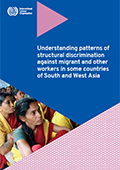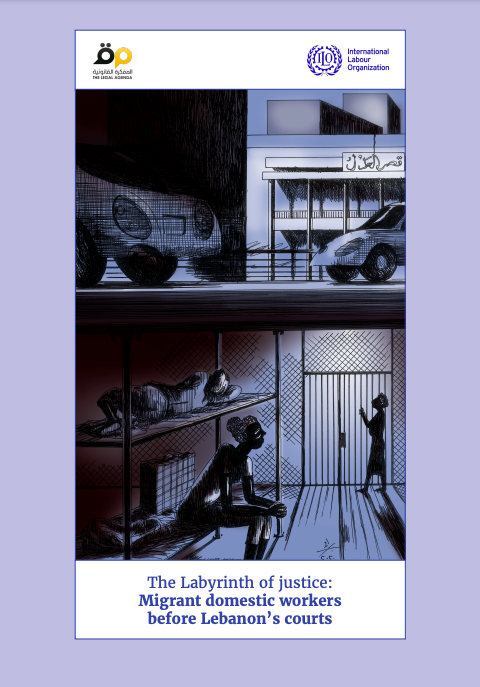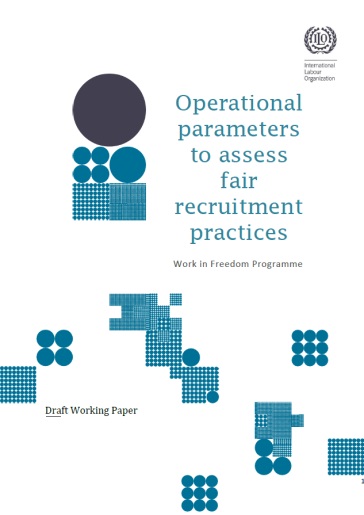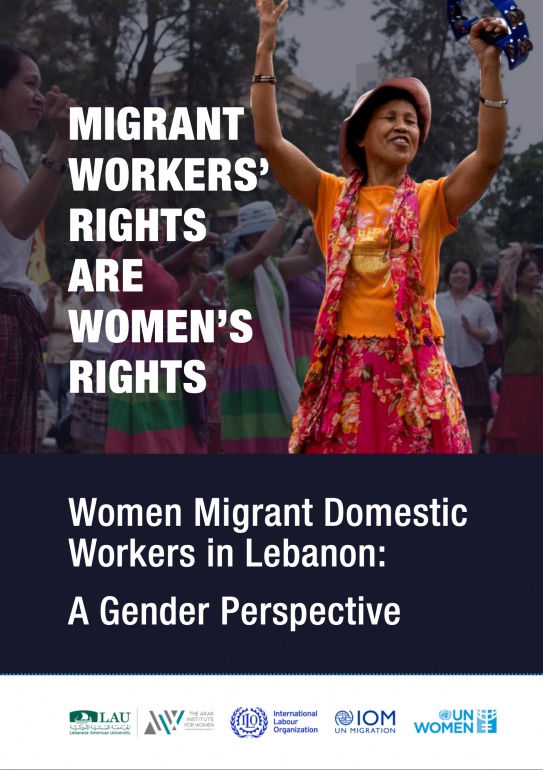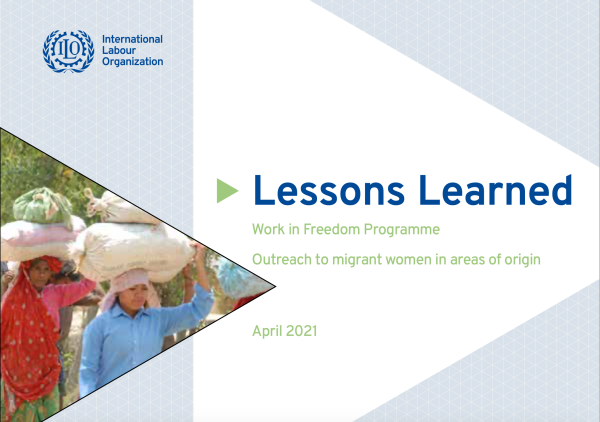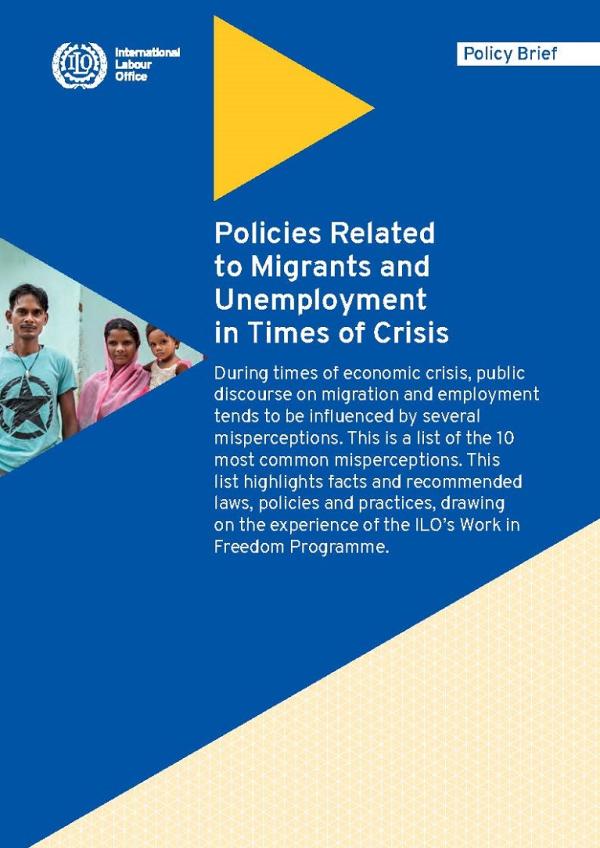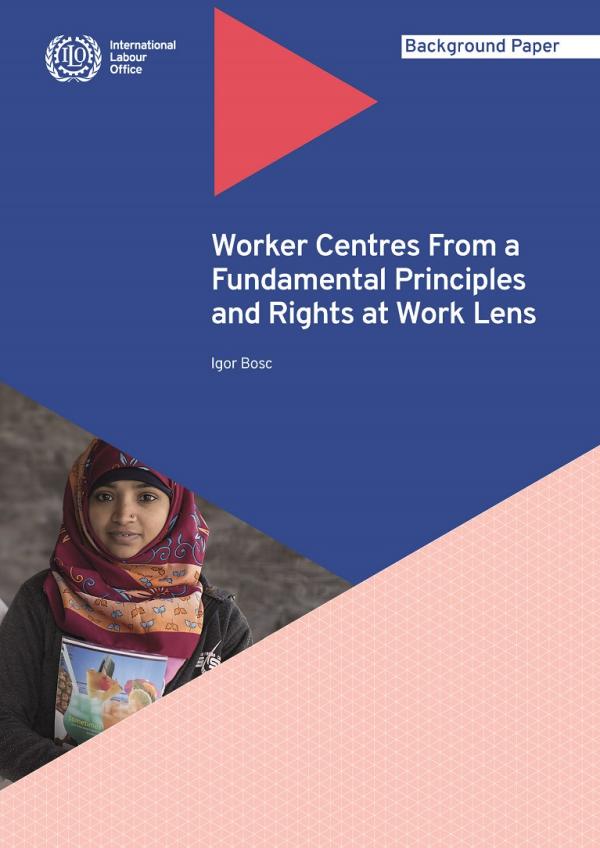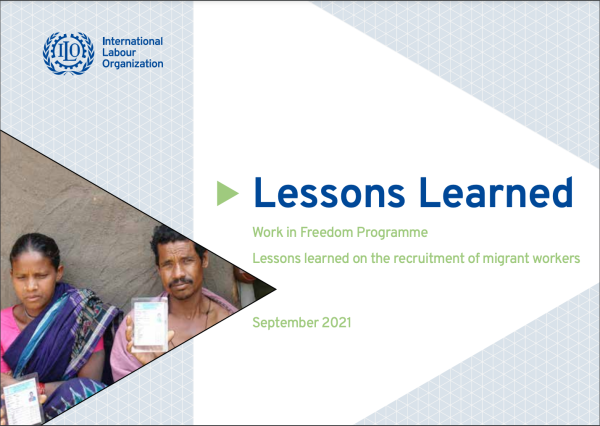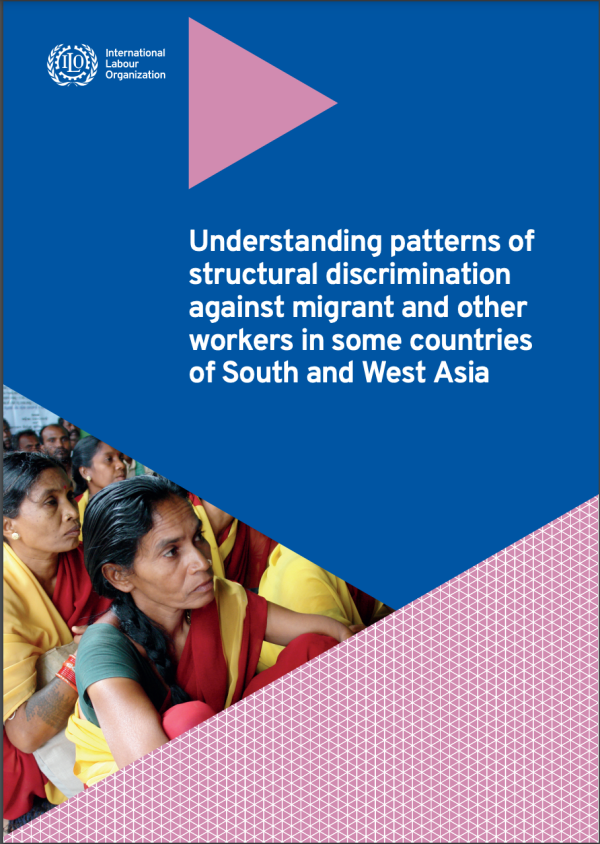Understanding patterns of structural discrimination of migrant and other workers in some countries of South and West Asia
This background paper reviews the literature that sheds light on the structural patterns of discrimination against migrant workers in some countries of South and West Asia. It also articulates recommendations that would help officials in UN agencies, international organizations, constituents and other civil society individuals and groups, while referring to the existing evidence of structural discrimination to support the application of international labour standards.
While references to international non-discrimination standards do occasionally surface in public discourses, this paper reviews evidence that discrimination in the world of work is not only characterized by socially deviant cases of discriminatory abuse, as reported in the media, but is rather intrinsic to the way various market economies and political systems are structured. This is manifested by indicators of privilege for some and indicators of deprivation for those at the bottom of the social and political hierarchies, including the interaction between both.
Type of document :
Country/Region : , , , , , , ,
Year of publication :
Theme : , , , , ,
The Labyrinth of justice: Migrant domestic workers before Lebanon’s courts
This study is documentary research of jurisprudence regarding migrant domestic workers in Lebanon. It reviews and identifies the systemic flaws of Lebanon’s judiciary system in delivering justice to migrant domestic workers and explains why migrant women keep a distance from law enforcement processes.
Also available in Arabic. A video of the presentation is available.
Type of document :
Country/Region :
Year of publication :
Theme :
Working Paper on Operational Parameters to Assess Fair Recruitment Practices
These parameters list a series of questions and issues that should be looked into in order to assess recruitment practices.
In South Asia, the pathways to jobs in domestic, garment or other similar sectors within the region or to the Middle East are intersected by various agents or contractors in an environment shaped by multiple rules and practices determining the mobility of aspiring workers especially women. The fluidity and segmentation of labour supply chains and labour regimes are such that none of the key stakeholders such as labour recruiters, regulators and even employers can guarante on their own a fair migration outcome for any workers. To do so requires understanding the specificity of recruitment processes from end to end and strong multi-stakeholder cooperation. The purpose of these operational parameters is to identify the main fields that need to be assessed and related questions when analyzing recruitment processes.
Type of document :
Country/Region : , , , ,
Year of publication :
Theme : , , ,
Women migrant domestic workers in Lebanon: A gender perspective
This paper illuminates the gender dimensions of women migrant domestic workers’ lived experiences in Lebanon under the kafala system. It examines the circumstances of women migrant domestic workers who live with their employer (live-in workers) and those who do not (live-out workers).
Type of document :
Country/Region :
Year of publication :
Theme : , ,
Lessons Learned Part 1: Outreach to migrant women in areas of origin
This document describes the lessons learned by the Work in Freedom programme on outreach to migrant women in areas where they migrate from. This compilation was preceded by an earlier edition of Lessons Learned in October 2017, followed by another one in February 2019. The findings are important to inform Governments, donors and civil society groups on their policies regarding the protection of migrant women, safe migration, pre-departure training and orientation and more.
Type of document :
Country/Region : , , , , , ,
Year of publication :
Theme : , ,
Policy brief on policies related to migrants and unemployment in times of crisis
The purpose of this policy brief is to explain influence of misperceptions during times of economic crisis, on public discourse on migration and employment and recommend laws, policies and practices to overcome these misperceptions.
During times of economic crisis, public discourse on migration and employment tends to be influenced by several misperceptions. This is a list of the 10 most common misperceptions. This list highlights facts, recommended laws, policies and practices, drawing on the ILO’s Work in Freedom Programme. It was presented at the Kafala Reform Workshop on 11 March 2020 at Beirut, Lebanon by Mr Igor Bosc, CTA, Work in freedom Programme to the Minister of Labour and participants.
Type of document :
Country/Region : , , , ,
Year of publication :
Theme : , ,
Worker Centres from a Fundamental Principles and Rights at Work Lens
The purpose of this paper is to explain how a worker centre can also perform functions that support fundamental principles and rights at work. The paper draws on the experience of the ILO’s Work in Freedom programme in supporting worker centres in South and West Asia.
Worker centres are meant for all types of workers, however they tend to cater primarily to the needs of informal workers and migrant workers and tend to exist and be located in areas where fundamental principles and rights at work, such as non-discrimination, freedom of association and collective bargaining as enshrined in International Labour Organization (ILO) Conventions No. 111, No. 87 and No. 98, are a distant reality for both informal workers and migrant workers.
This paper draws on the experience of the ILO’s Work in Freedom programme in supporting worker centres in South and West Asia. It was presented at the ILO Anniversary Conference “Continuing the Struggle: The International Labour Organization Centenary and the Future of Global Worker Rights” held on 21–22 November 2019 in Washington, DC at a panel titled “Protecting Migrants and Refugees Working in Global Supply Chains: New Directions for the ILO.
Type of document :
Country/Region : , , , ,
Year of publication :
Theme : , , , ,
Lessons Learned Part 2: Recruitment
This document describes the lessons learned by the Work in Freedom programme on recruitment of migrant workers. This compilation was preceded by an earlier edition of Lessons Learned in October 2017, followed by another one in February 2019. This new edition focuses particularly on recruitment of migrant workers. It lists and describes the nature of both conventional and non-conventional interventions and reviews some of the assumptions behind the rationale for these interventions.
Type of document :
Country/Region : , , , , , ,
Year of publication :
Theme : , ,
Understanding patterns of structural discrimination against migrant and other workers in some countries of South and West Asia
This background paper reviews the literature that sheds light on the structural patterns of discrimination against migrant workers in some countries of South and West Asia. It also articulates recommendations that would help officials in UN agencies, international organizations, constituents and other civil society individuals and groups, while referring to the existing evidence of structural discrimination to support the application of international labour standards.
While references to international non-discrimination standards do occasionally surface in public discourses, this paper reviews evidence that discrimination in the world of work is not only characterized by socially deviant cases of discriminatory abuse, as reported in the media, but is rather intrinsic to the way various market economies and political systems are structured. This is manifested by indicators of privilege for some and indicators of deprivation for those at the bottom of the social and political hierarchies, including the interaction between both.
Type of document :
Country/Region : , , , , , , ,
Year of publication :
Theme : , , , , ,
A comprehensive analysis of policies and frameworks governing foreign employment for Nepali women migrant workers and migrant domestic workers. Exploring the migration policymaking process with a specific focus on bans and restrictions on foreign employme
One of the principal causes and risk factors for forced labour and trafficking, identified by past research led by the International Labour Organization (ILO)’s Work in Freedom (WiF) Programme, is restrictive and gender-insensitive migration policies. These include restrictions on movement in the form of bans and restrictions on the departure of women migrant workers and migrant domestic workers from origin countries to seek foreign employment.
In the ILO’s efforts to support the construction of regular migration pathways for women migrant workers and migrant domestic workers which respect their safety, dignity, wellbeing and human and labour rights and which allow them to enrich their own lives, the lives of their families and communities back home, the Work in Freedom Programme of ILO Country Office for Nepal commissioned this present review between February and June 2020 as a comprehensive analysis of legal and policy frameworks governing foreign employment for women migrant workers and migrant domestic workers. This review is an update of ILO’s previous study of migration bans, 'No Easy Exit: Migration Bans Affecting Women from Nepal' published in 2015, but fills an important research gap by focusing on the policy formulation phase itself. The findings identify and characterize the ways in which stakeholders (governmental and otherwise) formulate policy narratives, negotiate policies and regulations and invoke knowledge claims in order to justify regulatory and policy interventions related to women migrant workers, migrant domestic workers and associated thematic areas – including anti-trafficking frameworks, frameworks combatting forced labour, domestic work and more.
Type of document :
Country/Region : , , ,
Year of publication :
Theme : , , , , , , , ,
Subscribe to the Fair Recruitment Initiative Newsletter
Sign up to receive news delivered to your inbox.

